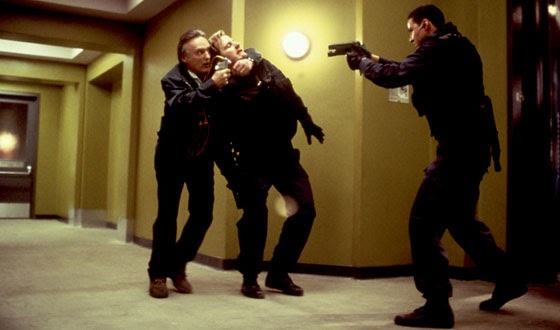[I’m learning, as I age, I cannot go around quoting mediocre early 90’s movies anymore unless I seek permission from my audience. When I went to the hospital, my first (older) nurse laughed when I cited Adventures in Babysitting‘s “One stitch? All of this for one stitch?” The second, 20-something nurse, looked confused. So I recognize my limited response when I refer to Speed with my title, Shoot the Hostage. But I love it too much to change it.]
My computer arrived yesterday. It’s gorgeous, so light and shiny. I bought it used, because I’m both cheap and participating in a silent revolution against our throw-away culture. Thus, my computer has a slight ding on the top left corner. It’s folded in, ever so slightly; not so much that it’s overtly noticeable, but enough that I’m not under the allusion of perfection.
That dented corner translates to freedom.
No longer am I under the pressure of maintaining perfection. It’s still a very nice machine. I ordered a hard shell and a case to try to preserve it best I can. I’m not going to toss it to the back of my minivan and let the 3-year-old pound on it just because of a slight imperfection. I’m doing my part to keep it in top shape. But the stress of keeping it pristine disappeared with the discovery.
Imagine if we approached life like that.
Fear overwhelms us. It creeps into the corners of our lives when we aren’t looking. We get paralyzed by the idea that what we have or do isn’t perfect. Here’s the thing, friends. None of us is perfect. (Wait, was I supposed to keep that a secret?) We have cracks or dents. What we do – our jobs, our families, our activity within communities – are faithful, well-intentioned yet imperfect efforts. We know it about ourselves. And we might even know it about other people. So why is it part of the situation?
If we’re held at gunpoint by fear, then shoot the hostage. Take it out of the equation, like Keanu said. Shoot perfection in the leg.
When you eliminate the variable, you can concentrate on what is in front of you. Deeply immerse yourself in doing your best. Follow your curiosity when the question arises, “I wonder what would happen if I…”
When you don’t hold yourself to a standard of perfection, you find freedom to explore and backtrack. Let yourself return to the starting point acknowledging that it didn’t lead to where you thought it would, but maybe – just maybe – the adventure was worth the effort. And maybe you learned something about yourself, God or the world that will change your next attempt. Because ultimately, that’s the only standard we can be held to.
Perfection was never the goal; faithfulness was.
